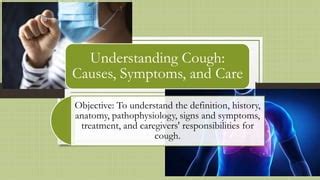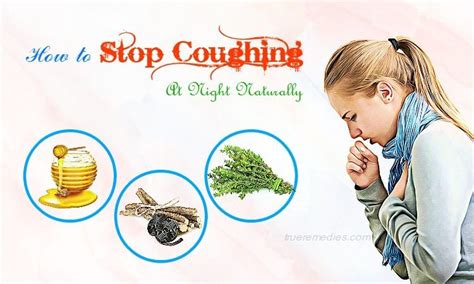Intro
Discover 5 effective ways to stop coughing, alleviating symptoms with natural remedies, cough suppressants, and throat soothers, to help manage persistent coughs and promote relief.
Coughing is a natural reflex that helps to clear the airways of irritants, but when it becomes persistent and disruptive, it can be a significant source of discomfort and distress. Whether it's a dry, hacking cough or a wet, productive one, finding effective ways to stop coughing is essential for getting relief and restoring overall well-being. In this article, we'll delve into the importance of addressing coughs, explore the various types of coughs, and discuss evidence-based methods for managing and stopping coughs.
A cough can be a symptom of an underlying condition, such as a respiratory infection, allergies, or acid reflux, and understanding the root cause is crucial for developing an effective treatment plan. Moreover, coughing can lead to complications like fatigue, headache, and sleep disturbances, which can impact daily life and productivity. By learning how to stop coughing, individuals can alleviate these symptoms, reduce the risk of complications, and improve their quality of life.
Effective cough management involves a combination of self-care strategies, lifestyle modifications, and medical interventions. From staying hydrated and using humidifiers to trying over-the-counter medications and natural remedies, there are numerous approaches to stopping coughs. Additionally, making dietary changes, avoiding irritants, and practicing good hygiene can also help to alleviate cough symptoms. In the following sections, we'll examine these methods in detail, providing practical tips and insights for individuals seeking to stop coughing and find relief.
Understanding the Types of Coughs

Acute Coughs
Acute coughs are usually caused by viral or bacterial infections, and their symptoms can range from mild to severe. These coughs can be further subdivided into dry and productive coughs. Dry coughs are non-productive, meaning they don't bring up mucus or phlegm, while productive coughs produce mucus or phlegm. Understanding the type of cough is crucial for selecting the most effective treatment approach.5 Ways to Stop Coughing

- Stay Hydrated: Drinking plenty of fluids, such as water, herbal tea, and warm soup, can help to thin out mucus and soothe the throat. Aim to drink at least eight glasses of fluid per day, and consider increasing your intake if you have a productive cough.
- Use a Humidifier: Dry air can irritate the throat and exacerbate coughing. Using a humidifier can add moisture to the air, relieving congestion and coughing. Clean and maintain your humidifier regularly to prevent the growth of bacteria and mold.
- Try Over-the-Counter Medications: Over-the-counter (OTC) medications like cough suppressants, expectorants, and combination products can help to alleviate cough symptoms. However, always follow the recommended dosage and consult with your doctor before taking any medication, especially if you have underlying health conditions.
- Practice Good Hygiene: Good hygiene practices, such as washing your hands frequently, avoiding close contact with people who are sick, and avoiding sharing utensils or personal items, can help to prevent the spread of infections that can cause coughing.
- Make Lifestyle Modifications: Making lifestyle changes, such as quitting smoking, avoiding exposure to air pollutants, and managing stress, can also help to alleviate cough symptoms. Consider incorporating stress-reducing activities like meditation, yoga, or deep breathing exercises into your daily routine.
Natural Remedies for Coughs
In addition to these methods, there are several natural remedies that can help to stop coughing. Some of the most effective natural remedies include:- Honey: Honey has antimicrobial and anti-inflammatory properties that can help to soothe the throat and alleviate cough symptoms. Mix a spoonful of honey with warm water or tea to create a soothing drink.
- Ginger: Ginger has natural anti-inflammatory properties that can help to reduce inflammation and alleviate cough symptoms. You can consume ginger in the form of tea, soup, or supplements.
- Thyme: Thyme has antimicrobial properties that can help to combat infections that cause coughing. You can consume thyme in the form of tea or add it to your meals as a spice.
Managing Chronic Coughs

- Avoiding Irritants: Avoiding exposure to air pollutants, tobacco smoke, and other irritants can help to alleviate chronic cough symptoms.
- Using Medications: Medications like bronchodilators, corticosteroids, and acid reducers can help to manage chronic cough symptoms.
- Making Dietary Changes: Making dietary changes, such as avoiding trigger foods and incorporating anti-inflammatory foods, can also help to alleviate chronic cough symptoms.
When to Seek Medical Attention
While most coughs can be managed with self-care strategies and over-the-counter medications, there are certain situations where seeking medical attention is essential. If you experience any of the following symptoms, seek medical attention immediately:- Difficulty Breathing: If you experience difficulty breathing or shortness of breath, seek medical attention immediately.
- Chest Pain: If you experience chest pain or tightness, seek medical attention immediately.
- Fever: If you have a fever over 102°F (39°C), seek medical attention immediately.
- Blood in Mucus: If you notice blood in your mucus or phlegm, seek medical attention immediately.
Conclusion and Next Steps

We invite you to share your experiences and tips for managing coughs in the comments section below. If you found this article helpful, please share it with your friends and family who may be struggling with cough symptoms. Together, we can work towards creating a healthier and more informed community.
What are the most common causes of coughs?
+Coughs can be caused by a range of factors, including respiratory infections, allergies, acid reflux, and air pollutants. Understanding the underlying cause is crucial for developing an effective treatment plan.
How can I stop coughing at night?
+To stop coughing at night, try using a humidifier, elevating your head with extra pillows, and avoiding irritants like tobacco smoke and air pollutants. You can also try drinking warm tea or taking a warm shower before bed to help soothe your throat.
What are the best natural remedies for coughs?
+Some of the most effective natural remedies for coughs include honey, ginger, and thyme. These remedies have antimicrobial and anti-inflammatory properties that can help to soothe the throat and alleviate cough symptoms.
